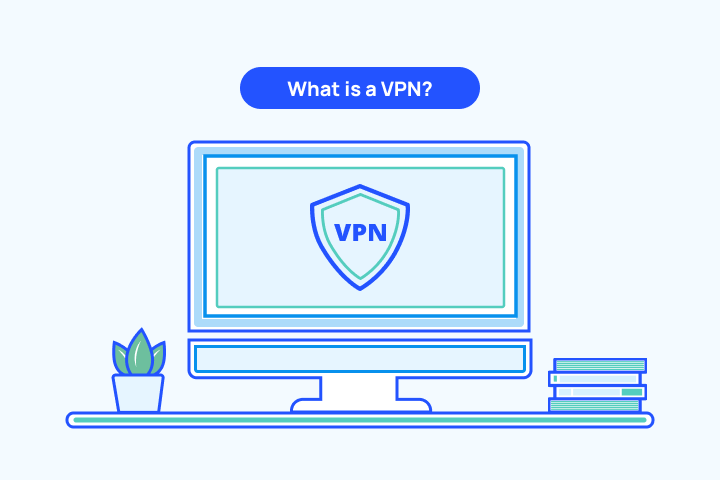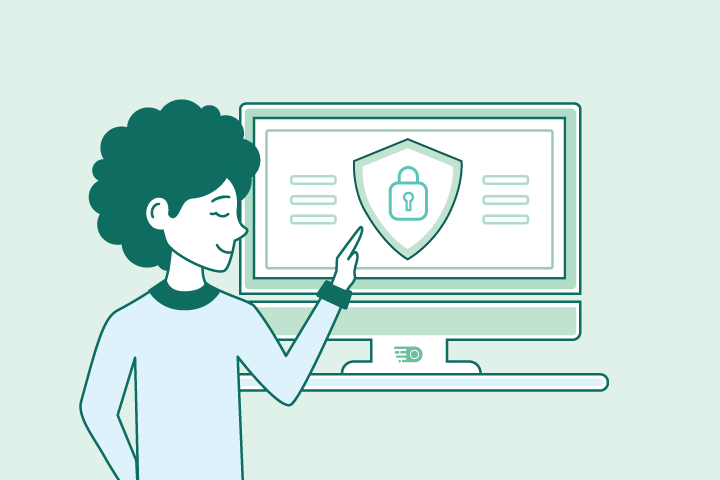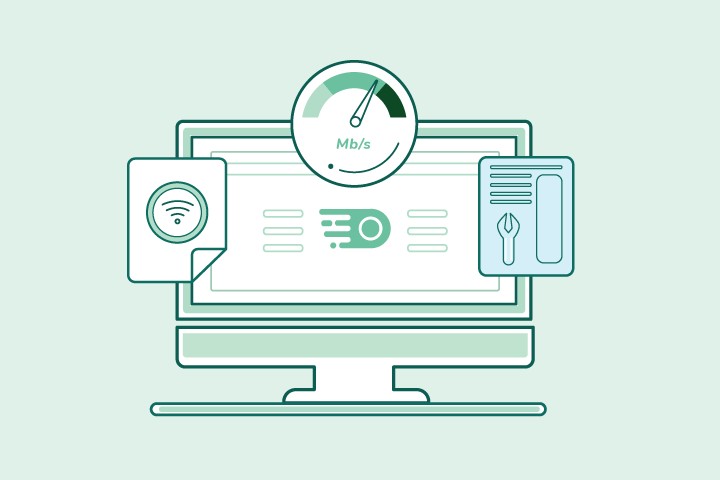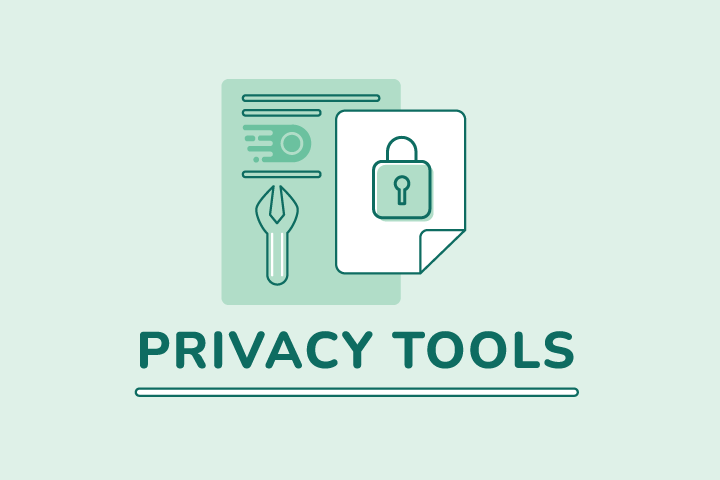What is a VPN & Why Should I Use One?

HighSpeedOptions prides itself on providing honest, quality content. While we may be compensated when you make a purchase through links on our site, all opinions are our own. Here's how we make money.
Table of Contents
Whether you’re using public WiFi or a reputable internet provider, safeguarding your privacy and data online is crucial. A Virtual Private Network (VPN) is one of the easiest ways to do so. Here’s what a VPN is (and isn’t) and why you should use one.
What is a VPN?
Very simply, a VPN is a tool that creates an encrypted connection between your device (laptop, phone, etc) and a remote server. It can be a software app or a device, often embedded in a WiFi router. The “tunnel” a VPN establishes prevents hackers, governments, or anybody else from snooping on the data you are sending and receiving. It also masks your IP address so that websites can’t track you or identify your location.
Need reliable and secure internet? Search your area for the best service and provider.

Why You Should Use a VPN
Are you a frequent traveler? Do you access the internet via public WiFi? Do you watch a lot of content on popular streaming services? Shop online? Privacy advocate? Here are a few reasons why you should use a VPN:
Enhanced Privacy
The prime reason to use a VPN is online privacy. Without one, internet providers can log everything you do online – where you go, what you send and receive, and when you’re most active. A VPN encrypts data before it leaves your device, ensuring your online activities remain private. Even if someone intercepts the data, they won’t be able to decipher it.
Secure Public WiFi
Free WiFi at cafes, airports, and hotels is convenient, but often unsecured, leaving your online activities vulnerable to snoopers and cybercriminals. A VPN secures your connection on public WiFi, safeguarding your data even on insecure networks.
Circumventing Geo-Blocks
Ever been frustrated by geo-restricted content? A VPN hides your location and tricks websites into thinking you’re somewhere else, giving you access to content you can’t normally get, such as accessing Netflix libraries in other countries.
Preventing Bandwidth Throttling
Internet providers sometimes slow down your internet speed if they detect heavy data usage, known as bandwidth throttling. A VPN can prevent this by masking your activity from them, ensuring a smoother experience whether you’re streaming, gaming, or browsing.
Protecting Your IoT Devices
Many Internet of Things (IoT) devices, such as smart locks and other wireless home security devices, smart appliances, and wearable technology, lack security measures, making them vulnerable to hackers. Though VPNs can’t protect most IoT devices directly, they can reduce the risk of a successful attack by shielding the network.
A VPN will protect your personal data, maintain your online privacy, and allow you to securely access region-restricted content.
Promoting Freedom of Expression
Internet censorship is a major concern in some countries where authorities may block access to certain content and information. In such areas, a VPN is an invaluable tool that helps bypass these restrictions and exercise their right to freedom of expression and information.
Evading Location-Based Price Targeting
E-commerce platforms and online travel agencies sometimes offer different prices based on your geographic location. This is known as price discrimination or dynamic pricing. By using a VPN, you can mask your location, potentially unlocking better deals and avoiding unjustified price hikes.
How a VPN works
When you turn on a VPN, your data is routed through an encrypted tunnel to a VPN-operated server before returning to the public internet. Again, any data sent back to your device is rerouted in the same way. This effectively masks your IP address from online snoopers because your web traffic comes from the VPN server instead of your actual location or device. It also encrypts your online data as it passes through the VPN tunnel, protecting you from things like identity theft and speed throttling.
Limitations of a VPN
A VPN isn’t 100% secure and it isn’t antivirus software. While a VPN may offer malware-blocking features, it’s not going to be as effective as standalone antivirus software, which is specifically designed to safeguard your device from malware and viruses.
A VPN isn’t a password management tool. A few premium VPNs like NordVPN offer a password manager addon (i.e. NordLock), but most do not. If that’s the case for your VPN, consider using a password tool like LastPass to prevent account breaches.
VPNs have come a long way over the years, but they’re not bulletproof. Here are a few disadvantages of VPNs:
- Free VPN services are risky
- Quality VPNs cost money
- Can slow overall internet speed
- VPN connections can suddenly drop
- VPN blocker technology exists
- Not compatible with all devices
Final Thoughts
While a VPN is not a standalone solution to all cybersecurity threats, it’s an effective weapon for online security. It goes a long way in protecting your data, enhancing your privacy, and providing you with a safe, unrestricted browsing experience. Considering the minimal cost and effort involved in setting up a VPN, the benefits are undoubtedly worth your consideration for overall privacy, cybersecurity, and as an essential part of your toolkit of online privacy tools.
Find providers in your area

Table of Contents





